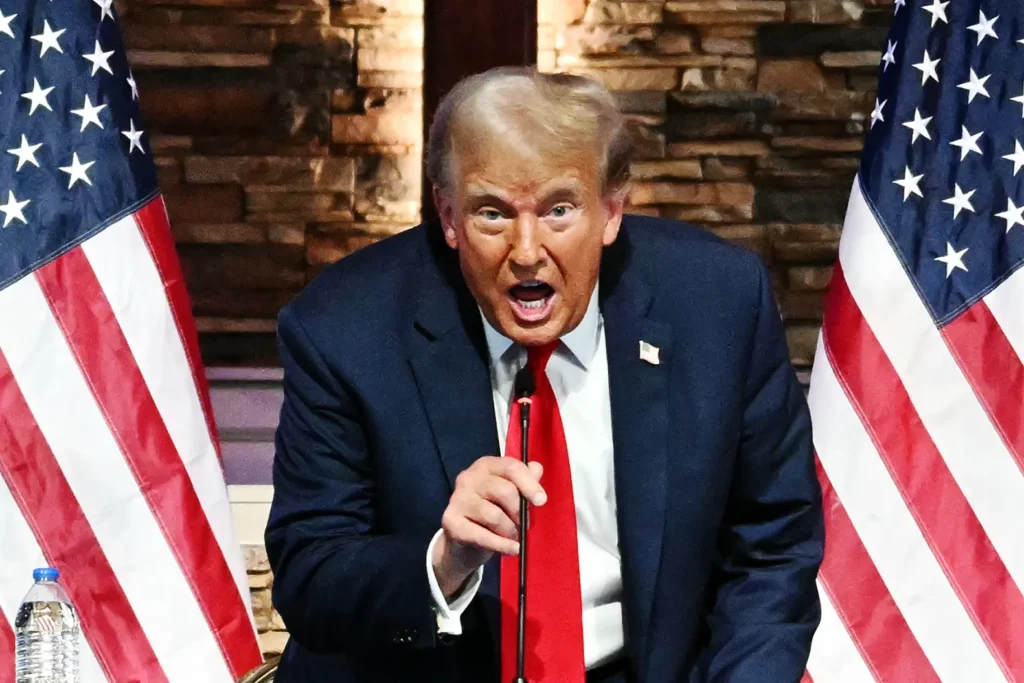Four U.S. law firms have obtained temporary relief for Harvard University, blocking the Trump administration’s policy that would bar international students from staying in the country if their courses are online-only.
A federal judge has temporarily blocked the Department of Homeland Security (DHS) from revoking Harvard University’s authorization to enroll international students. The decision comes after Harvard filed a lawsuit against the agency on Friday.
U.S. District Judge Allison D. Burroughs approved Harvard’s request for emergency relief just one day after the university submitted a 72-page complaint. The complaint challenged what Harvard called an “unprecedented” and “retaliatory” move by the government, which threatened to impact over 7,000 international students.
For purposes of Federal Rule of Civil Procedure 65(b), the President and Fellows of Harvard College has adequately demonstrated that it provided notice to the Defendants. The Court further finds that, absent the issuance of a Temporary Restraining Order, Harvard will suffer immediate and irreparable harm before a full hearing can be held,” Judge Burroughs stated in her order.

On May 22, 2025, the Trump administration revoked Harvard University’s certification to enroll international students under the F-1 and J-1 visa programs. The decision came after Harvard declined to implement sweeping federal directives concerning its governance structure, faculty recruitment practices, student admissions policies, and oversight of international students. In response, the university has filed a legal challenge against the administration’s action.
In April 2025, Harvard filed a lawsuit against the U.S. Department of Health and Human Services (HHS) and other federal agencies, contesting the Trump administration’s decision to halt $2.2 billion in federal funding.
Harvard, in a strongly worded complaint, claimed that the administration’s decision to revoke its SEVP (Student and Exchange Visitor Program) certification was not only procedurally improper but also retaliatory—an intentional effort to penalize the University for resisting broad ideological pressures from the federal government.
“With a single action, the government has attempted to eliminate a quarter of Harvard’s student population,” the university stated, warning that the decision “jeopardizes both Harvard’s academic integrity and its reputation on the global stage.
According to the complaint filed on May 23, the crisis began on April 16, 2025, when DHS Secretary Kristi Noem sent a letter to Harvard demanding detailed information on every international student enrolled across its 13 schools. The request, to be fulfilled within 10 business days, sought records including disciplinary history, protest involvement, and any actions deemed as “obstruction of the learning environment.
Harvard stated that the request exceeded any lawful regulatory obligations. The university complied in good faith with all data it was required to maintain, yet DHS deemed the response “insufficient” without providing any explanation and immediately revoked its SEVP certification.
According to Harvard, the so-called ‘visa crisis’ was merely the latest episode in a growing campaign of pressure led by the Trump administration. The complaint details a sequence of actions beginning in February 2025, when the Department of Justice’s “Task Force to Combat Antisemitism” started focusing on elite universities. Senior DOJ officials, including attorney Leo Terrell, openly declared, “We’re going to take away your funding.
On April 11, the government sent a “demand letter” threatening to withhold billions in federal funding unless Harvard overhauled its admissions process, faculty hiring, and student disciplinary policies to align with the administration’s preferred ideological and political criteria — including conducting viewpoint audits and excluding students considered “hostile to American values.
When Harvard refused to comply, the government responded by freezing $2.2 billion in research grants and contracts. President Donald Trump then took to Truth Social, publicly demanding that Harvard lose its nonprofit status and labeling the university as “a disgrace to America.” The following day, the government revoked Harvard’s visa certification.
First Amendment: Harvard asserts that the government’s actions constitute unconstitutional viewpoint discrimination and retaliation. Referencing recent Supreme Court rulings (such as NRA v. Vullo), Harvard maintains that the government cannot use its regulatory authority to punish speech it dislikes or force individuals to adopt a particular ideology.
The university claims that the revocation of its SEVP certification was “arbitrary and capricious,” as it lacked a clear explanation and lawful justification. According to federal regulations, DHS is required to issue a formal Notice of Intent to Withdraw (NOIW) and provide a 30-day period for response. However, these procedures were not followed.
Harvard argues that it was denied fair notice and the chance to respond, which constitutes a violation of its constitutional due process rights. The university has been continuously authorized to host international students for more than 70 years and maintains that this longstanding certification cannot be withdrawn without fundamental procedural safeguards.
READ ALSO……Putin Calls Talk With Trump “Very Productive”, Says Russia Open to Ukraine Engagement














 Categories
Categories








